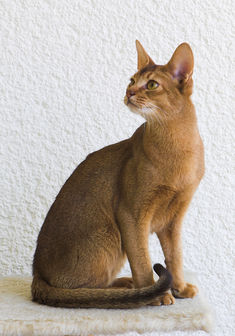
Purebred vs Domestic Cats
The world of feline companionship is diverse, with cats ranging from pedigreed purebreds to lovable domestic mixed breeds. Understanding the differences between purebred and domestic cats can help potential cat owners make informed decisions about their feline friends.
Purebred cats are the result of selective breeding to maintain specific physical and behavioral traits. These cats have a documented ancestry and conform to a breed standard set by cat fancier associations. Examples of popular purebred cats include Siamese, Persian, Maine Coon, and Bengal cats. Each breed has distinct characteristics, from the flat face of a Persian to the wild-looking coat of a Bengal.
The advantages of purebred cats include predictability in terms of appearance, size, and to some extent, temperament. Prospective owners can research breeds to find one that matches their lifestyle and preferences. Purebreds often have a rich history and unique traits that appeal to enthusiasts. However, they can be more expensive to purchase and may be prone to certain genetic health issues due to limited gene pools.
On the other hand, domestic cats, often referred to as mixed-breed or “moggy” cats, have a diverse genetic background. These are the cats commonly found in shelters, rescued from the streets, or born to uncontrolled breeding situations. Domestic cats come in a wide variety of colors, patterns, and body types, each one unique.
The main advantage of domestic cats is their genetic diversity, which often translates to better overall health and fewer breed-specific issues. They are usually less expensive to acquire, with many available for adoption from shelters. Domestic cats can surprise their owners with unexpected traits and personalities, making each one a unique companion.
However, with domestic cats, it’s harder to predict adult size, coat type, or specific personality traits. This unpredictability can be seen as part of their charm for many cat lovers.
In terms of care, both purebred and domestic cats require attention, love, and proper healthcare. Purebreds might need more specialized care related to their breed-specific traits, such as grooming for long-haired breeds or monitoring for known genetic issues. Domestic cats generally have fewer specific health concerns but should still receive regular veterinary care.
It’s worth noting that many purebred cats end up in shelters too, and breed-specific rescues exist for those interested in a particular breed but also wanting to adopt.
Ultimately, the choice between a purebred and a domestic cat comes down to personal preference, lifestyle, and what an individual is looking for in a feline companion. Both can make wonderful pets, offering years of companionship, love, and the unique joy that cats bring to our lives.
Whether choosing a purebred with a specific look and temperament or embracing the surprise element of a domestic cat, the most important factors are responsible ownership, proper care, and the commitment to providing a loving home for the duration of the cat’s life.




